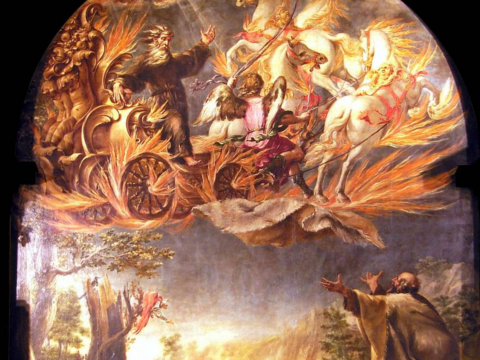
I thank you, Father, Lord of heaven and earth, that you have hidden these things from the wise and understanding and revealed them to little children.
Matt 11:25
The spiritual and heavenly treasures of a Christian are analogous to the riches of the sea. On the surface, one may only observe turbulent waves and a great deal of impurity, yet the true riches lie beneath. Similarly, the riches and treasures of a Christian are not visible; they are concealed within the very heart of God. Just as no one knows the thoughts of a man except the spirit of man, no one knows the thoughts of God except the Spirit of God and those to whom God has revealed them.
Furthermore, these things are beyond the scope of reason; they are too exalted and too magnificent for a faculty like reason to comprehend. Just as an object too brilliant for the eyesight can blind it, these objects are too exalted for reason and therefore cannot be seen by it.
Additionally, human blindness, which is inherent, prevents individuals from seeing these things. Chiefly, God arranges events in His providence in a manner that seemingly contradicts His promises, making it contrary to the perceptions of the senses and reason. God often hides His mercy towards His own people in this manner. Consider the case of Abraham, to whom God made two promises: first, that He would lead him out of his homeland to a land flowing with milk and honey, and second, that He would make his descendants as numerous as the stars in the sky, and through his seed, all the nations of the earth would be blessed. When Abraham arrived in Canaan, the promised land, he faced a famine and had to flee to Egypt for sustenance. Additionally, Sarah, his wife, was barren, and it seemed impossible for her to bear children. Despite receiving a child, Abraham was tested when he was asked to sacrifice Isaac, the son of promise, and although Isaac survived, he did not marry for another forty years, and even then, he did not bear children for twenty years. Over the course of 150 years, there were only seventy descendants of Abraham, yet the promise was that all the nations of the earth would be blessed through his seed. God appeared to be acting contrary to His promise. Similar instances can be found in Jacob’s life. God commanded Jacob to return from Laban, but on his journey, Laban pursued him with intentions to harm him. During his journey, his wife’s nurse and wife died, his daughter Dinah was raped, and his sons Simeon and Levi committed a terrible act that caused Jacob’s reputation to suffer. Finally, his brother Esau approached with hostile intent. All of these adversities occurred during a journey that God had commanded Jacob to undertake. If Jacob had not possessed faith, enabling him to see beyond these challenges to the unseen promises, it would have been impossible for him to persevere. When God led the Israelites to Canaan, they embarked on a lengthy journey through the wilderness. Upon their arrival, they encountered the harshest region of the land, the arid and barren south, seemingly contradicting the promise of a land flowing with milk and honey. God’s providence appeared to be at odds with His promise, obscuring the excellence of His blessings and making them invisible. In light of this, it becomes clear that the things of God are not perceptible to a carnal eye and require more than reason alone to apprehend them.
Firstly, we should cease to be surprised that individuals with exceptional intellect and reasoning abilities do not perceive the things of God but disregard them. Do not be troubled by this; these are unseen things. Many are deceived into thinking that because certain individuals possess greater intellectual capacities to comprehend natural phenomena, it necessarily follows that they have deeper insights into spiritual matters. They reason thus: “Why do you simple men and women understand these things when there are great scholars and learned individuals who do not?” This line of thinking reveals a carnal disposition, as if the strength of human reason could enable individuals to comprehend more than faith can achieve. You may recall Christ’s words in Matthew 11:25: “I thank you, Father, Lord of heaven and earth, that you have hidden these things from the wise and understanding and revealed them to little children.” Nevertheless, the mindset of worldly individuals is evident; they often regard religion as foolish and absurd. This extends to religious fervor as well; when one observes another deeply committed to something they consider inconsequential, they cannot help but deem it foolishness. Therefore, when worldly individuals witness God’s people passionately engaged with things they find devoid of excellence, and see them willing to risk and endure for these beliefs, they regard it as folly and madness.
Just as Pontius Pilate reacted with skepticism when Christ spoke of truth in the face of a life-threatening situation, so too do carnal individuals dismiss the actions of God’s servants who are willing to sacrifice their wealth and lives for what they perceive as insignificant matters. This dismissal arises because the things of God are unseen. Consequently, in matters of spiritual and heavenly significance, we must consistently strive to diminish the role of reason and elevate that of faith. As Martin Luther stated, “In matters of God, we must not constantly seek reason, for these are unseen things.” Luther also emphasised that faith “slays the beast of reason” in spiritual matters. While reason does serve a purpose when controlled by faith, it should be viewed as a beast that must be subdued to allow for a clearer perception of spiritual matters.
Jeremiah Burroughs. The Saint’s Treasury.



